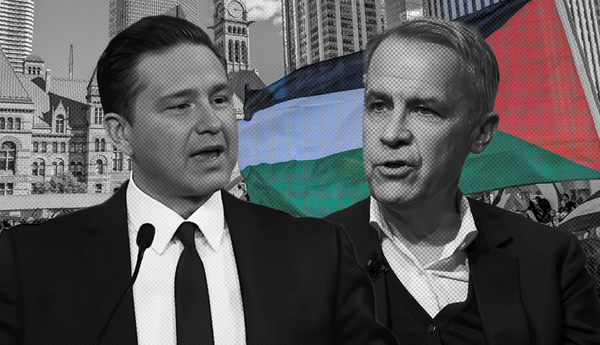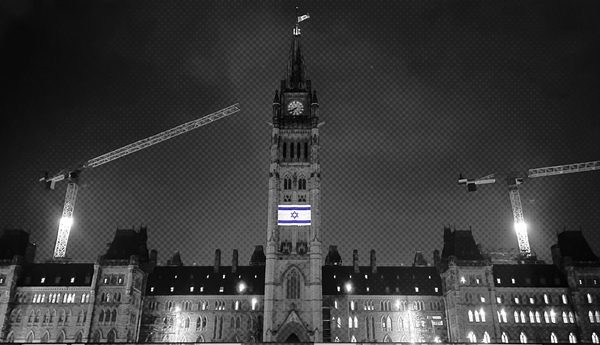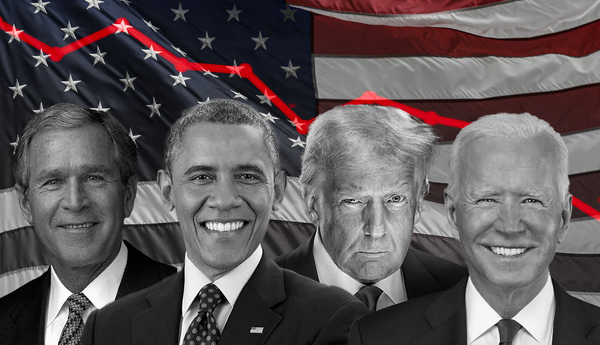On February 1, Amnesty International released a new report, titled, “Israel’s Apartheid Against Palestinians: Cruel System Of Domination And Crime Against Humanity,” which Israeli officials had condemned in an attempt to halt its publication. The report, conducted over four years with input from Israeli and Palestinian NGOs, documents policies of restriction, territorial fragmentation, and dispossession of land and property, which amount to apartheid. Amnesty’s report follows two similar ones released last year, from B’Tselem and Human Rights Watch (HRW), which both also accuse Israel of apartheid.
These reports help bring global awareness to the violence of Israel’s occupation of Palestinian land. However, they also simultaneously hinder the Palestinian movement for liberation by robbing Palestinians of the platform to narrate their oppression, framing this oppression through a liberal analysis, and then either ignoring or condemning the ways in which resistance is being waged on the ground.
New To Whom?
Two days before Amnesty’s report was released, the Institute For Palestine Studies published an article by Hashem Abushama, titled, “‘According to Whose Archives?’: The Tantura Massacre and Revisionist Israeli Historiography.” Abushama’s essay reacted to an article published a week earlier by Israeli newspaper, Haaretz. This article featured testimonies from Israeli army veterans describing their participation in the 1948 massacre at the Palestinian village of Tantura, which has been well-documented and narrated by Palestinian survivors.
Abushama writes, “While there is value in excavating as many details about these atrocities, the fact that [debates about the events] are almost exclusively based on new discoveries of colonial archival materials (such as the archives of the Israeli Occupation Forces) or perpetrators’ testimonies, rather than Palestinian archives and testimonies of witnesses and survivors, is in and of itself a reflection of colonial power. If anything, it demonstrates that colonial archives, colonial perpetrators, and colonial academics are automatically endowed with the authority to narrate.”
Abushama’s article outlines the double standard at work where information presented by Israeli historians is deemed to be legitimate, but the hundreds of Palestinians that have contributed an endless body of analysis and literature on the topic in question in the past are ignored. This double standard is also apparent in the work of Western and Israeli NGOs, including the apartheid reports from Amnesty, HRW, and B’Tselem.
The way these reports are presented ignores the validity of decades of research by Palestinian intellectuals documenting Israeli apartheid. Examples of such research go at least as far back as 1965, when Zionist Colonialism In Palestine by Fayez Sayegh was published. Sayegh described how Israel uses apartheid, writing that “the Zionist settler-state has learned all the lessons which the various discriminatory regimes of white settler-states in Asia and Africa can teach it. And it has proved itself in this endeavour an ardent and apt pupil, not incapable of surpassing its teachers. For, whereas the Afrikaner apostles of apartheid in South Africa, for example, brazenly proclaim their sin, the Zionist practitioners of apartheid in Palestine beguilingly protest their innocence!”
The Amnesty report, then, is just the latest example of how the authority to narrate Palestinian oppression has been hijacked from them by NGOs.
The NGO-ization Of Settler Colonialism
The problem with these reports, though, is not just that they fail to properly credit Palestinians. Instead, it’s also that their narrative fails to accurately capture what the problem is, to the detriment of Palestinians but the comfort of Western audiences.
Amnesty prefaces its report by noting that their analysis focuses solely on “Israel’s institutionalized and systematic discrimination against Palestinians.” The problem is that apartheid is merely a symptom of settler colonialism, so an analysis that fails to recognize this can’t properly understand apartheid or the broader issue at hand. The practice of apartheid stems directly from the creation of the Israeli colonial project through the Nakba, which the report fails to centre its analysis on, instead describing it as the “1947-49 conflict.” Israel is not ‘practicing apartheid,’ but instead sustaining settler colonialism through the system of apartheid, just as it does with administrative detention and executions.
The 280-page report also fails to reference Zionism at all. The overarching goal of Zionism is the elimination of the Indigenous population in Palestine, and the maintenance of a permanent occupation. It’s what motivated the ethnic cleansing that created Israel, as well as the ensuing decades of apartheid. So, apartheid in Israel can’t be properly described without mentioning its relation to Zionism.
Overall, Amnesty’s report frames apartheid as a standalone problem. As a result, the only issue it finds with the Israeli government is its failure to offer Palestinians human rights. Its desire to maintain its colony, however, isn’t questioned; some oppression is OK, but not enough to bring international attention.
The NGO has made its stance even clearer on social media. On the day the report was released, Amnesty replied on Twitter to a series of frequently asked questions they devised. In response to the question of whether they “oppose Israel’s military occupation of Palestine,” they wrote, “Amnesty hasn’t taken a position on occupation. Our focus has been on the Israeli government’s obligations, as the occupying power, under international law, but Amnesty has taken no position on the occupation itself.”
Demonizing Resistance
This contradiction renders the report useless, considering its premise is ending apartheid, and apartheid can’t end without dismantling the entirety of the colonial project. As such, the NGOs narrative on tactics that can be used to combat apartheid are also flawed. For example, the report asks Palestinians to be limited to hoping governments will end military aid and arms sales to Israel, or push for this through electoral politics and lobbying. Of course there’s importance in lobbying, advocacy and the Palestinian-led BDS movement, but they are just a part of the overall freedom struggle, not its whole.
Beyond offering a losing strategy for liberation, NGOs also demonize what Palestinians are doing on the ground. Amnesty, for example, has a track record of condemning Palestinian resistance. This practice continues in their new report, which emphasizes their documentation of “violations committed by Palestinian authorities or armed groups against Palestinians and Israelis.” But this condemnation of resistance, done from chartered jets and press conferences in the West, fails to acknowledge the power dynamic between the colonizer and the colonized, and perpetuates a chauvinistic and shallow understanding of anti-colonial struggle.
By dictating what constitutes legitimate resistance, NGOs like Amnesty ask for international support for Palestinian struggle to be made conditional, demanding Palestinians engage in negotiations and dialogue with the occupier. It constructs and presents the perfect Palestinian victim: innocent but not defiant. This is the same dialogue that created the Oslo Accords and the subcontractor of Israeli occupation, the Palestinian Authority. It also reinforces the both-sides narrative popular in the West that helps legitimize violence against Palestinians.
This perhaps shouldn’t come as a surprise given the nature of Amnesty and other NGOs, which are bound by mandates shaped through funding from private donors and governments that limit and direct the scope of their work. These organizations claim impartiality and independence from government sway, but this isn’t always the case. In reality, they’ve effectively worked with the United States on multiple occasions to influence the shape of revolutionary movements, and help advance destructive imperialist interests through advocating for practices such as foreign intervention under the guise of ‘humanitarian aid.’
But Palestinian resistance won’t be limited to what NGOs want, and they are working to reclaim their narrative. During last year’s Unity Intifada against renewed Israeli onslaught and amidst global attention, the resistance of Palestinians from the occupied ‘48 territory,’ the West Bank, and Gaza, embodied the political strategy of Sumud — steadfastness, perseverance.
In a published manifesto, organizers framed the dispossession of Sheikh Jarrah, Silwan and the 11-day aerial bombardment of Gaza into a bigger picture of 73 years of ongoing ethnic cleansing. The manifesto states, “This is how Israel imprisoned us in prisons of isolation; some of us caged in the ‘Oslo prison’ in the West Bank, some in the ‘citizenship prison’ in the part of Palestine occupied in 1948, some of us isolated by the monstrous siege and ongoing, devastating assault on the ‘Gaza prison,’ some of us isolated under the systematic Judaization campaigns on the ‘Jerusalem prison,’ and some isolated from Palestine altogether, dispersed across all corners of the globe.”
The international community and NGOs have no authority to confine Israeli crimes to just “racial discrimination,” or to determine the modes of acceptable resistance from Palestinians. What material effects do reports like the one from Amnesty have on the ground? Will they end the Israeli blockade on Gaza? Will they return Palestinians to their homes and reunify displaced families? Will they bring back the destroyed and depopulated villages of Qisarya, Tantura and Tabariyah, on whose ruins lie Tel Aviv and other Israeli cities? Will they give refugees the right of return? Dismantle the checkpoints and the barrier wall? Palestinian sovereignty? The sole way for these things to happen is through decolonization, and what this will look like can only be decided by the Palestinian revolutionary movement, not elites, capitalists, or NGOs.
So, while Amnesty’s report may be useful for lobbying Western governments to end military aid to Israel, it’s also harmful because it tries to reduce the problem to just a lack of human rights, without ever questioning Israeli control. Therefore, it’s critical for us to re-centre Zionism and the ongoing process of settler colonialism as the ultimate foundation of oppression, and recognize the Palestinian right to resist annihilation.






